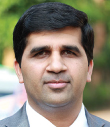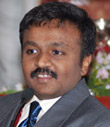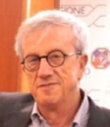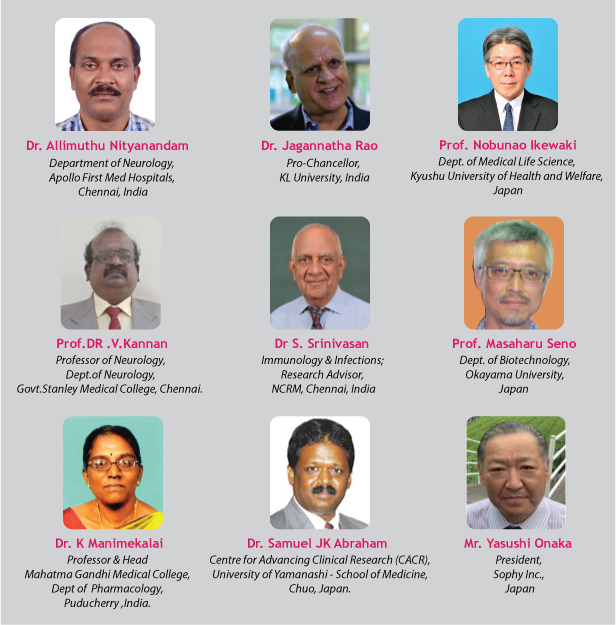Programme of World Parkinson's Day 2023 held on 10, April 2023
Proceedings of the Event
Dr C.J. Vetrievel,
Founder, Chairman & Managing Director, Be Well Hospitals, Chennai, India.
Introductory remarks- Organising Committee
Dr C.J. Vetrievel, Founder, Chairman & Managing Director, Be Well Hospitals, Chennai, India presented the introductory remarks in which he explained about the collaboration of Be Well Hospitals and GN Corporation, Japan in conducting the clinical trial of Nichi BRITE B-Glucan in patients with Parkinson’s disease.
Dr. Muralidhar Hegde,
Professor of Neurosurgery, Houston Methodist Weill Cornell Medical College, USA.
Title: Parkinson’s disease - Perspectives from Alpha-synuclein related pathogenesis and current research
Dr. Muralidhar Hegde, Professor of Neurosurgery, Houston Methodist Weill Cornell Medical College, USA spoke on “Parkinson’s disease - Perspectives from Alpha-synuclein related pathogenesis and current research” in which he spoke about their lab’s work on the molecular mechanisms of neurodegenerative illnesses, with a focus on amyloid proteins such as alpha-synuclein, genomic damage and neuronal defects in repair in Parkinson's disease, stroke, and amyotrophic lateral sclerosis (ALS). He outlined how the aetiology of neurodegenerative illnesses is heavily influenced by DNA repair inhibitions/deficiencies. He explained their recent research focuses on defining the function of the TDP-43 ALS-linked RNA binding protein in DNA double-strand break repair and evaluating the theory that TDP-43's nuclear clearance and aggregation is a major factor in cell death in Parkinson’s disease. He briefed his work on the mechanism of amyloid proteins' genotoxicity and investigating how natural substances might be able to prevent it. He also explained about activation of mitochondrion-dependent programmed cell death (PCD) pathways contributing to the death of substantia nigra pars compacta dopaminergic neurons. (PD). Key molecular components of this pathogenic cascade include SIRT1 which can activate PGC-1, a coactivator for the PPAR (peroxisome proliferator-activated receptor) Gamma. (PPARG) and that the ROS defence system's genes can be regulated by PGC-1a. PGC-1a has been demonstrated to increase the expression of ROS-detoxifying genes including SOD1/SOD2 and UCP2 in order to protect WT brain cells from oxidative stress. By boosting mitochondrial gene expression through nuclear respiratory factor 1 (NRF-1) and nuclear-encoded mitochondrial transcription factor A (TFAM), SIRT1 may potentially deacetylate PGC-1 to drive mitochondrial biogenesis leading to novel therapeutic strategies.
To view the presentation by Dr. Muralidhar Hegde Click here.
Dr Rukmini Mridula Kandadai,
Associate Professor, Parkinson’s Disease & Movement Disorders Research Centre, City-Neuro Centre, Hyderabad, India.
Title: Epidemiology, Diagnosis and Current treatment modalities for Parkinson’s Disease.
Dr Rukmini Mridula Kandadai, Associate Professor, Parkinson’s Disease & Movement Disorders Research Centre, City-Neuro Centre, Hyderabad, India spoke on the Epidemiology, Diagnosis and Current treatment modalities for Parkinson’s Disease. She explained the latest treatment approaches to Parkinson’s disease especially on the approach of deep brain stimulation (DBS) of the bilateral subthalamic nucleus (STN) or globus pallidus for the treatment of motor symptoms, how it is more effective than oral dopaminergic drugs.
To view the presentation by Dr Rukmini Mridula Click here.
Dr. V. Dedeepiya Devaprasad,
Clinical Coordinator, Nichi-In Centre for Regenerative Medicine (NCRM).
Title: Nichi BRITE - AFO-202 beta glucan in Parkinson - Pilot Clinical study outcome.
Dr. V. Dedeepiya Devaprasad, Clinical Coordinator, Nichi-In Centre for Regenerative Medicine (NCRM) explained the outcome of the pilot clinical study of 90 days duration on evaluation of the Parkinson's disease-modifying effects of beta-glucan generated by the Aureobasidium pullulans AFO-202 strain produced beta-glucan (Nichi BRITE B-Glucan). Based on the earlier study of these beta glucans in autism spectrum disorder (ASD) in which there was has improvement in clinical symptoms with regulation of gut dysbiosis especially the control of gut Enterobacteriaceae responsible for the production of curli and amyloid-alpha-synuclein, he described that this pilot clinical study was conducted. He explained the positive outcome in terms of improvement in Unified Parkinson’s Disease Rating Scale (UPDRS) scale, Constipation Severity Score, Magnetic Resonance Imaging (MRI) of brain based Parkinsonism Index (MRPI), Serum Creatinine Kinase, Fasting, Post-prandial blood sugar, HbA1c and Lipid levels in blood in five of the eight patients who completed the study. He added that they are planning to conduct larger clinical studies in which they are planning to evaluate the effects of these Nichi BRITE B-Glucans on the gut microbiome as well as volumetric MRI in Parkinson’s disease patients.
To view the presentation by Dr Dedeepiya Devaprasad Click here.
Prof. Ezio Gagliardi,
Director, Microbiology and Molecular Biology, Alimentazione Ambiente, Rome, Italy.
Title: Disappearance of hand tremor and walk restoration in a 104 years, old post-Covid.
Prof. Ezio Gagliardi, Director, Microbiology and Molecular Biology, Alimentazione Ambiente, Rome, Italy spoke his experience on disappearance of hand tremor and walk restoration in a 104 years, old post-Covid Parkinson’s disease patient from Italy after consumption of Nichi BRITE B-Glucan. The patient had problems in coherence, cognition and memory which greatly improved after continuous dose escalated consumption of Nichi BRITE B-Glucan and the patient could regain memory of even her World War II days and she recently celebrated her 105th birthday with improved health.





